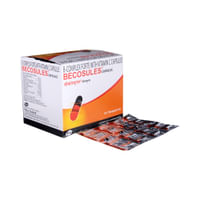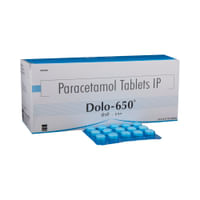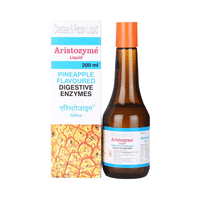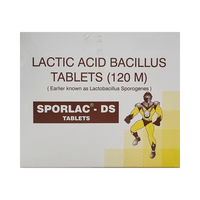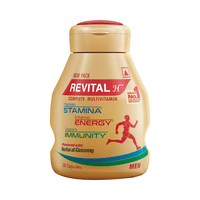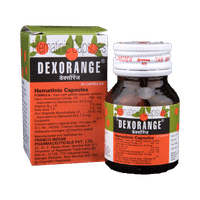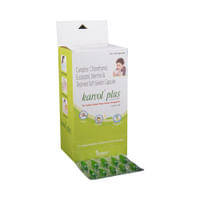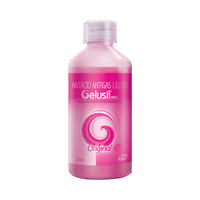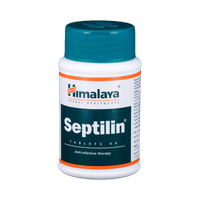Aclopride-Cold Tablet

Rs.63for 1 strip(s) (10 tablets each)
Composition FOR Aclopride-Cold
Aceclofenac(100mg),Paracetamol(325mg),Cetirizine(10mg),Phenylephrine(5mg),Caffeine(25mg)food interaction for Aclopride-Cold
alcohol interaction for Aclopride-Cold
pregnancy interaction for Aclopride-Cold
lactation interaction for Aclopride-Cold
food
alcohol
pregnancy
lactation
Aclopride-Cold Tablet may be taken with or without food, but it is better to take it at a fixed time.
None
None
CAUTION
It is not known whether it is safe to consume alcohol with Aclopride-Cold Tablet. Please consult your doctor.
CONSULT YOUR DOCTOR
Information regarding the use of Aclopride-Cold Tablet during pregnancy is not available. Please consult your doctor.
CONSULT YOUR DOCTOR
Information regarding the use of Aclopride-Cold Tablet during breastfeeding is not available. Please consult your doctor.
CONSULT YOUR DOCTOR
SALT INFORMATION FOR Aclopride-Cold
Aceclofenac(100mg)
Uses
Aceclofenac is used for pain relief. It relieves pain and inflammation in conditions like rheumatoid arthritis, ankylosing spondylitis, and osteoarthritis.
How it works
Aceclofenac is a non-steroidal anti-inflammatory drugs (NSAID). It works by blocking the release of certain chemical messengers that cause pain and inflammation (redness and swelling).
Common side effects
Nausea, Diarrhea, Abdominal pain, Constipation, Dyspepsia, Increased liver enzymes, Gastritis, Mouth ulcer, Increased blood urea, Increased creatinine level in blood, Rash, Anaphylactic reaction, Anemia (low number of red blood cells), Cardiac failure, Gastrointestinal ulcer, Breathlessness
Paracetamol(325mg)
Uses
Paracetamol is used for pain relief and fever. It is used to relieve pain in conditions like headache, muscle pain, or dental pain.
How it works
Paracetamol is an analgesic (pain reliever) and anti-pyretic (fever reducer). It works by blocking the release of certain chemical messengers that cause pain and fever.
Common side effects
Nausea, Vomiting, Insomnia (difficulty in sleeping), Headache, Constipation, Itching, Nephropathy, Hypersensitivity, Platelet disorders, Depression, Confusion, Hallucination, Abnormal vision, Hypoglycemia (low blood glucose level), Sterile pyuria, Liver toxicity, Hemorrhage
Cetirizine(10mg)
Uses
Cetirizine is used in the treatment of allergic conditions.
How it works
Cetirizine is an antihistaminic medication. It treats allergy symptoms such as itching, swelling, and rashes by blocking the effects of a chemical messenger (histamine) in the body.
Common side effects
Headache, Constipation, Sleepiness, Fatigue, Vomiting, Dryness in mouth, Diarrhea, Agitation, Paresthesia (tingling or pricking sensation), Itching, Rash, Weakness, General discomfort, Hypersensitivity, Increased appetite, Vertigo, Tachycardia, Convulsion
Phenylephrine(5mg)
Uses
Phenylephrine is used in common cold.
How it works
Phenylephrine is a decongestant. It works by narrowing the small blood vessels which provides temporary relief from inflammation (redness and swelling) and discomfort.
Common side effects
Nausea, Vomiting, Headache, High blood pressure, Arrhythmia (irregular heartbeats), Blurred vision, Breathlessness, Itching, Restlessness, Reflex bradycardia, Excitation, Epigastric pain, Neck pain, Tremors, Hypertensive crisis, Eye pain, Stinging in the eyes, Photophobia, Conjunctival sensitivity, Preterm and low birth weight infants, Fainting, Myocardial infarction, Subarachnoid hemorrhage
Caffeine(25mg)
Uses
Caffeine is used in the treatment of apnea of prematurity. It reduces the number of episodes of interrupted breathing in premature newborns.
How it works
Caffeine is a stimulant which works by blocking the action of certain natural substances (adenosine and phosphodiesterase).
Common side effects
Restlessness, Increased heart rate, Increased production of urine
SUBSTITUTES FOR Aclopride-Cold
54 Substitutes
54 Substitutes
Sorted By
 Rs. 60save 32% more per Tablet
Rs. 60save 32% more per Tablet Rs. 55save 15% more per Tablet
Rs. 55save 15% more per Tablet Rs. 79pay 22% more per Tablet
Rs. 79pay 22% more per Tablet Rs. 150pay 130% more per Tablet
Rs. 150pay 130% more per Tablet Rs. 71.80pay 10% more per Tablet
Rs. 71.80pay 10% more per Tablet
Expert advice FOR Aclopride-Cold
- You have been prescribed Aceclofenac to relieve pain and inflammation.
- Take it with food or milk to prevent upset stomach.
- Take it as per the dose and duration prescribed by your doctor. Long term use may lead to serious complications such as stomach bleeding and kidney problems.
- It may cause dizziness, drowsiness or visual disturbances. Use caution while driving or doing anything that requires concentration.
- Avoid consuming alcohol while taking Aceclofenac as it can cause excessive drowsiness and increase your risk of stomach problems.
- Inform your doctor if you have a history of heart disease or stroke.
- Your doctor may regularly monitor your kidney function, liver function and levels of blood components, if you are taking this medicine for long-term treatment.
Frequently asked questions FOR Aclopride-Cold
Aceclofenac
Q. Is Aceclofenac a good painkiller?
Aceclofenac is effective in relieving pain and inflammation. It is used to provide relief from various sorts of pain such as sprains, strains and other injuries. It is also helpful in various types of arthritis, gout, pain and inflammation following surgery.
Q. Is Aceclofenac safe?
Aceclofenac is safe if used in the dose and duration advised by your doctor. Take it exactly as directed and do not skip any dose. Follow your doctor's instructions carefully and let your doctor know if any of the side effects bother you.
Q. Does Aceclofenac get you high?
No, Aceclofenac does not get you high. It does not have an abuse potential (drug-seeking behavior) and does not cause physical or psychological dependence. However, if you do not feel well, consult your doctor.
Paracetamol
Q. What if I vomit after taking Paracetamol?
If you vomit in less than 30 minutes after having a dose of Paracetamol tablets or syrup, retake the same dose again. If you vomit after 30 minutes of a dose, you do not need to take another one until the next standard dose.
Q. When will I feel better after taking the Paracetamol?
Usually, you will start feeling better after about half an hour of taking a Paracetamol.
Q. How often can I take the Paracetamol?
You should only take four doses of Paracetamol in 24 hours. There should be a gap of at least 4 hours between two doses. Do not take Paracetamol for more than 3 days without consulting a doctor first.
Cetirizine
Q. Does Cetirizine make you tired and drowsy?
Yes, Cetirizine can make you feel tired, sleepy, and weak.
Q. Is Cetirizine a steroid? What is it used for?
Cetirizine is an anti-allergic medication, not a steroid. It relieves the symptoms of allergy. It is used to relieve runny nose, sneezing and redness, itching, and watering of the eyes caused by hay fever or seasonal allergies. It also relieves similar symptoms caused due to allergies to substances, such as dust mites, animal dander, and mold. It is also used to treat symptoms of hives, including itching and rash.
Q. How long does it take for Cetirizine to work?
You will notice an improvement within an hour of taking Cetirizine. However, it may take a little longer to notice the full benefits.
Phenylephrine
Q. Is it safe to use Phenylephrine?
Yes, Phenylephrine is safe for most of the patients. However, in some patients, it may cause side effects like nausea, vomiting, headache, fatigue, dizziness, dryness in the mouth, sleepiness and allergic reaction. If you experience any persistent problem while taking this medication, inform your doctor as soon as possible.
Q. Can the use of Phenylephrine cause dizziness?
Yes, the use of Phenylephrine can cause dizziness (feeling faint, weak, unsteady or lightheaded) in some patients. If you feel dizzy or lightheaded, it is better to rest for sometime and resume once you feel better. Do not drive or use any machines. Consult your doctor if the side effect persist or worsen.
Q. Can the use of Phenylephrine cause nausea and vomiting?
Yes, the use of Phenylephrine can cause nausea and vomiting. To avoid nausea one can take Phenylephrine with milk, food or with antacids. If vomiting occurs, drink plenty of water or other fluids. Talk to your doctor if vomiting persists. You should let your doctor know if you are unable to drink water and there are signs of dehydration, like dark colored and strong-smelling urine and a low frequency of urination. Avoid taking fatty or fried foods along with this medication. Do not take any other medicine without consulting your doctor.













